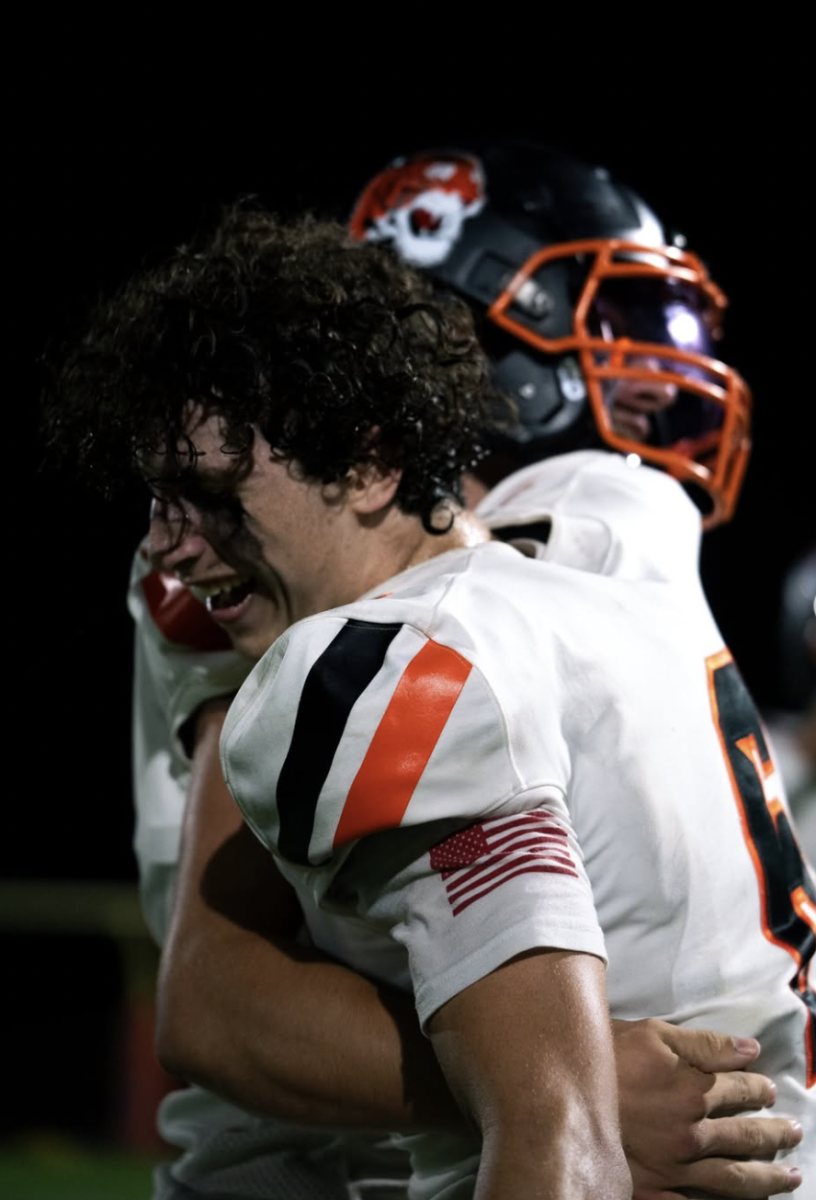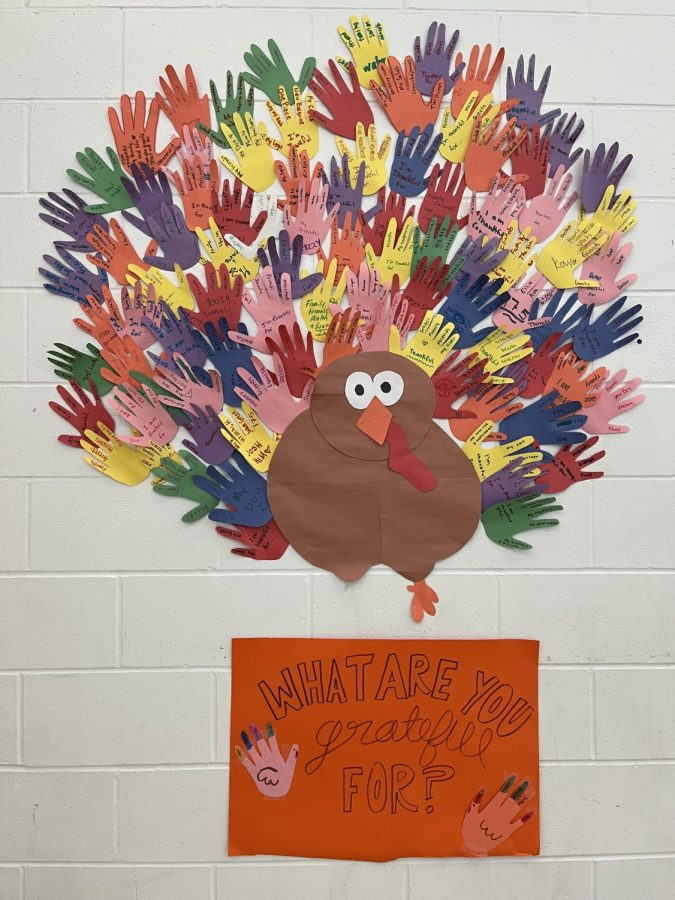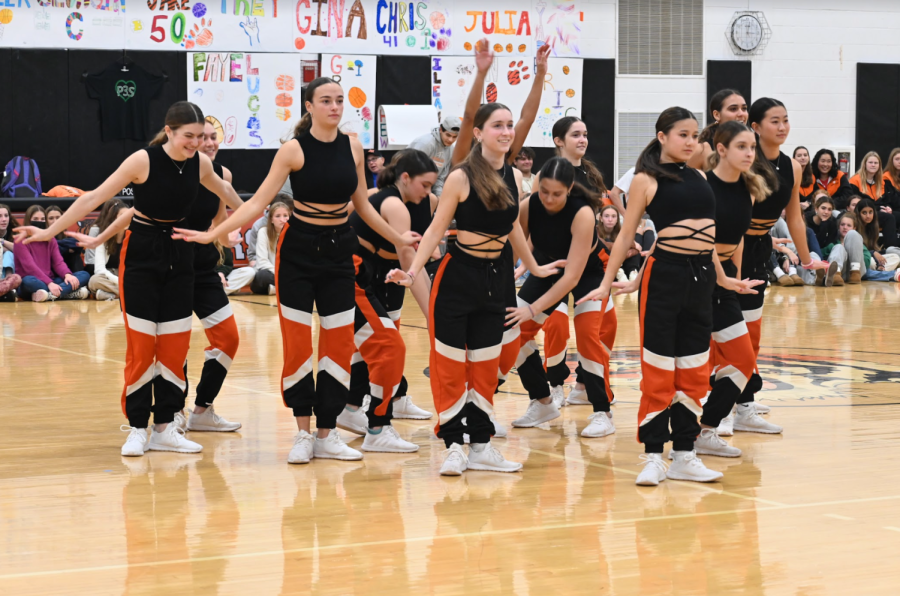B-block
by Jacques About-Rizk
Students learned how to identify and deal with unhealthy relationships from Nicole Nelson, a training and volunteer coordinator at The Second Step, during b-block of Feminism Day, May 25.
The Second Step is a group of survivors of domestic violence designed to help those who have experienced domestic violence, according to The Second Step website.
“I would encourage you to keep an eye on your friends and see if there are unhealthy behaviors,” Nelson said. “But most importantly, go with your gut. If you think something is wrong, something is probably wrong.”
Nelson explained how to spot dating violence and what to do if you see yourself or someone else in an unhealthy relationship. Friends attempting to isolate themselves or having physical marks of abuse can both be signs of dating violence.
Although trying to help friends in unhealthy relationships is important, pressuring someone to leave an unhealthy relationship can often make the situation worse for the victim, according to Nelson.
“You shouldn’t put any pressure on your friend,” Nelson said. “You need to believe them, validate them, make them understand that they have gone through something traumatic and that they didn’t deserve it. Be there for them. Listen.”
Nelson added that the recent use in social media has increased unhealthy relationships in the form of blackmail, location stalking, and excessive texting.
“Phones and social media can lead to unhealthy relationships which can lead to abusive behavior,” said Nelson. “We always have to look for the signs.”
A main idea that sophomore Max Kuechen took from the presentation was that relationships can never be one sided and have to focus on compromising with each other.
“My main takeaway was that it is important to keep relationships healthy and balanced in order to be happy,” Kuechen said.
C-block
by Nichol Weylman-Farwell
Male student panelists talked about their view of feminism and toxic masculinity during c-block of Feminism Day on Friday, May 25th.
“I think it’s stupid to think that raising up one gender means that you are bringing down another,” said senior Ben Schwartz.
The panelists spoke about the perception of feminism among many males at North.
“Back when I was an edgy 10-year-old, I used to enjoy watching those stupid ‘Feminist Cringe Compilation’ videos, but I’ve definitely grown up since then,” senior Joe Varady said.
Senior Karl Adrianza echoed Varady’s sentiment. “My first impression of [feminism] was that it was seen as the ‘butt’ of all jokes,” he explained.
Similarly, sophomore Noor Shoresh added that feminism is viewed in a negative fashion by some men. “People who need to hear feminist messages, like some white men, often feel alienated by feminism,” he said.
In response, junior Achille Ricca, a transgender man, said that women “shouldn’t have to make the feelings of men a top priority.”
The panelists also discussed their experiences with hypermasculinity in society.
Ricca explained that the expectations of being a “man” used to overshadow who he truly was. “I had to perform my masculinity when I wasn’t really passing as a man, and as a result, I had to put my emotions down,” he said.
Shoresh added, “We need to get rid of the stigma in society that men can’t show emotion, and have to be cold-hearted at all times, which I think we can combat by having more sentimental conversations with friends.”
Schwartz further explained that a perceived “manliness” often affects the way friends treat each other. “Your view won’t be respected if your not so-called, ‘manly’ enough, so it is a lowkey power struggle,” he said.
The panel then discussed about their experiences with “locker room talk.”
“Men are taught to value totally arbitrary things, like having sex, and when that doesn’t happen, they can sometimes go off the rails, which is a big factor in the whole incel [involuntary celibate] movement online,” Schwartz said.
To combat this, Ricca said that accountability is key. “Men need to hold each other accountable for what they say about women,” he said, adding “like, please call your boys out,” he added.
G-block
by Jake Forbes
Students and teacher panelists shared their views on intersectional feminism and answered questions on the topic during g-block of Feminism Day.
The block began with a video by Popsugar that explained intersectional feminism.
After the video, history teacher Subheen Razzaqui discussed the negative stigma surrounding Middle Eastern wardrobe. “Some women wear hijabs by force, I wear one because I enjoy it,” she said. “We not only judge women who wear less but women who wear more,” she said.
English teacher Charlene Beh talked about the beauty standard and how it is based on the looks of white women. Being a woman of color, she said, “You feel like it can never happen for yourself.”
Senior Wendy Li, a panelist, talked about the stereotype that East Asian women are “quiet and smart.” Li responded to this stereotype by saying, “I’ve always been someone who has had strong opinions and vocalized my beliefs.”
Several panelists spoke about solutions to these problems. Junior Iman Sayeed, a panelist, talked about the importance of allowing women of color to discuss their experiences. “The more you advocate, the better the movement,” she said.
Sayeed added, “It’s important for us to all have a platform to speak up and share stories,” she said.
After the moderators finished asking questions, the panelists opened up the discussion to questions from the audience.
Feminism Day presentations explore intersectionality of feminism
June 6, 2018
0
Donate to The Newtonite
More to Discover















































